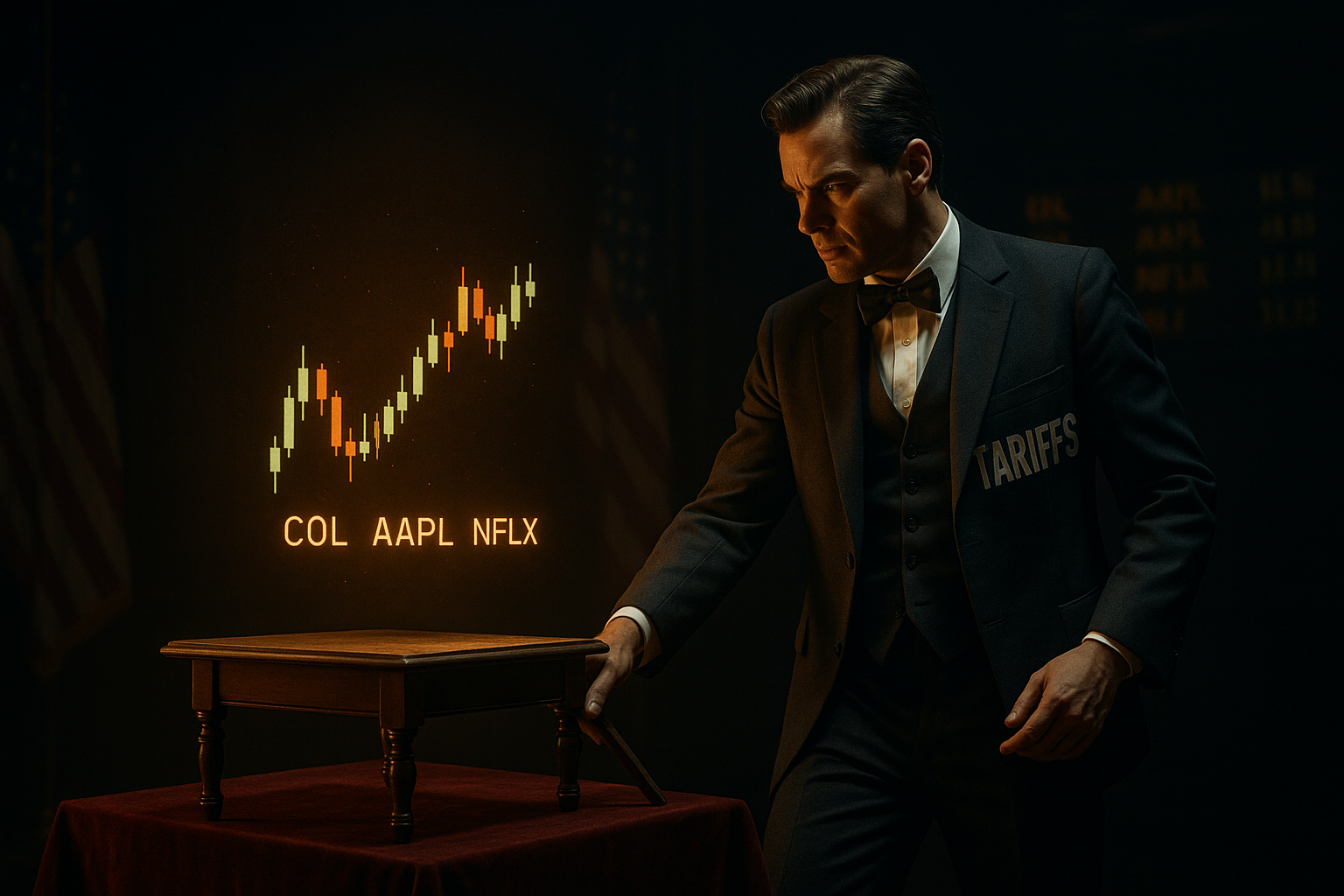The business news channels are at it again. Turn on any financial network and you'll see them—those perfectly coiffed experts in expensive suits making wildly contradictory predictions about America's economic future. Last week, I watched two "renowned economists" on the same program declare, within minutes of each other, that a recession was both "practically inevitable" and "nowhere on the horizon." Go figure.
It's the economic equivalent of weather forecasters predicting both sunshine and thunderstorms. Except these folks never have to answer for being spectacularly wrong.
The truth? Forecasting recessions is a mug's game. Always has been. If anyone could reliably predict economic downturns, they'd keep that information to themselves, make billions trading on it, and retire to a private island. The fact that they're sharing their "insights" on cable TV tells you everything you need to know.
But here we are again, asking that perennial question: Is the U.S. headed for a recession?
The signals are—to put it mildly—conflicting. The labor market remains stubbornly strong, with unemployment hovering near historic lows despite the Fed's aggressive rate-hiking campaign. Consumer spending hasn't exactly been gangbusters, but it hasn't fallen off a cliff either. And the housing market? Well, it's achieved this weird equilibrium where nothing's affordable yet somehow people are still buying homes.
Then again... that yield curve inversion (a historically reliable recession predictor) has lasted longer than most Hollywood marriages. Manufacturing has been contracting. And corporate earnings calls have started featuring more "cautious outlooks" and "challenging environments" than a meteorologist during hurricane season.
Look, this economic cycle is unlike anything we've seen before. We've never dumped so much stimulus into an economy, shut down global supply chains like they were malfunctioning appliances, and then jacked interest rates from zero to over 5% in the time it takes to binge-watch a Netflix series. The economics textbooks don't cover this scenario.
Having tracked recession predictions since the 2008 financial crisis, I've noticed they're almost always either too early or too late. Remember all those double-dip recession predictions in 2010-2011? Or the calls for imminent disaster when the yield curve first inverted in 2019?
One unique aspect of our current situation is the massive cash reserves many corporations accumulated during the pandemic. Unlike previous pre-recession periods, companies are sitting on liquidity buffers that could help them weather a downturn. Many consumers (though certainly not all) also strengthened their balance sheets when stimulus checks arrived and spending opportunities disappeared.
"We're seeing company balance sheets that are in much better shape than typical pre-recession periods," a chief investment strategist at a major bank told me recently. "That doesn't mean we avoid a recession, but it could mean a shallower one."
The most compelling argument for an eventual recession? History. The Fed rarely sticks a "soft landing" after inflation runs hot. When they raise rates this aggressively, something typically breaks.
But (and there's always a but in economics), this cycle might genuinely be different—a dangerous phrase, I know. Much of our inflation stemmed from pandemic-related supply constraints that are gradually resolving themselves without necessarily requiring demand destruction.
What's particularly strange about our current economic moment is how long we've been having this recession conversation. It's economic Groundhog Day. Wall Street firms keep adjusting their recession probabilities like they're fine-tuning a radio dial. Goldman now says 15% chance, while Bank of America's still sounding alarm bells.
Meanwhile, markets seem to be permanently pricing in what analysts call a "growth scare followed by Fed cuts"—a scenario that's been supposedly just around the corner for what feels like decades.
The candid answer to whether America faces an impending recession? Nobody really knows. Not your favorite TV economist. Not the Fed. Not the Treasury Secretary. Not even that guy at the end of the bar with surprisingly strong opinions about monetary policy.
Economics isn't physics. It's messy, psychological, and influenced by everything from geopolitics to technological disruption to whatever Elon Musk tweeted this morning.
For businesses and investors, the smartest approach isn't betting everything on correctly calling the recession/no-recession coin flip. It's building resilience to different scenarios while staying adaptable. If your financial plan only works in a sustained expansion... well, you might want to revisit those assumptions.
So is the U.S. headed for a recession? I'd love to give you a definitive answer, but I'd be lying if I did. The honest response acknowledges both the warning signs and the resilience factors without pretending to possess supernatural foresight.
Sometimes the most accurate economic prediction is simply: it's complicated. And anyone telling you otherwise is probably trying to sell you something.




